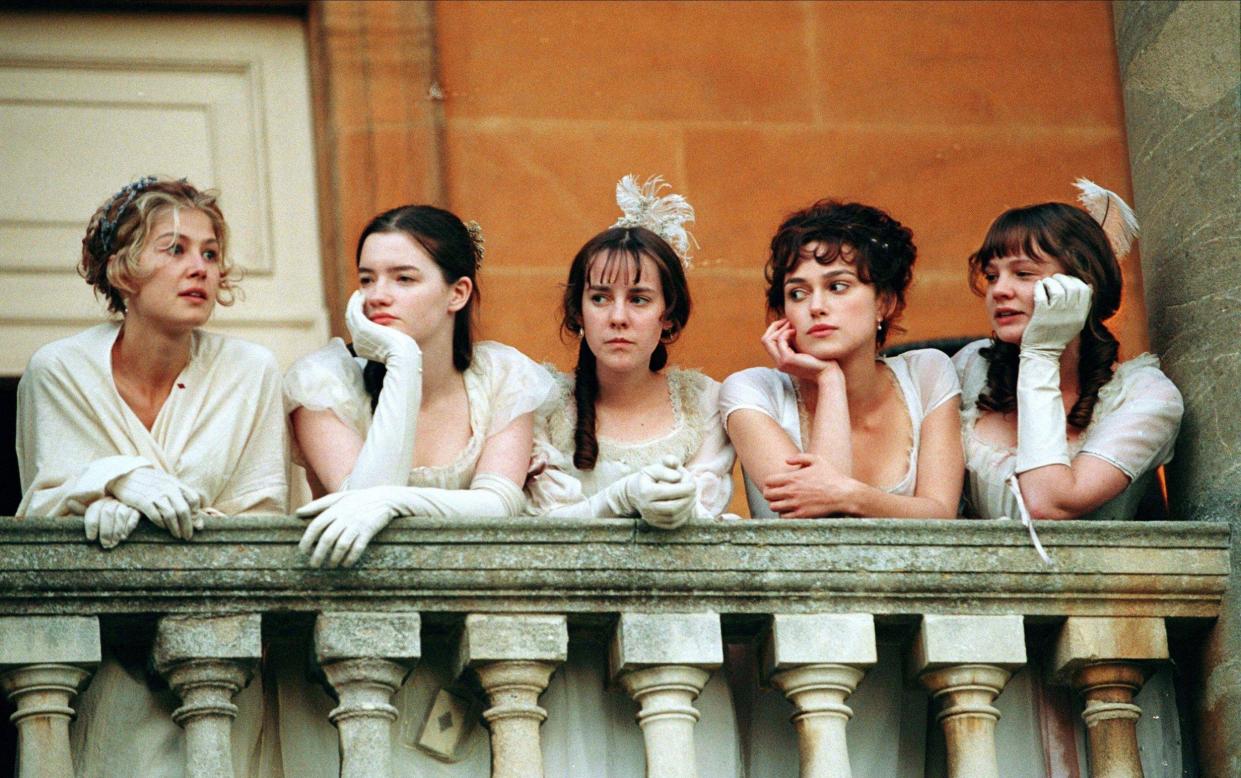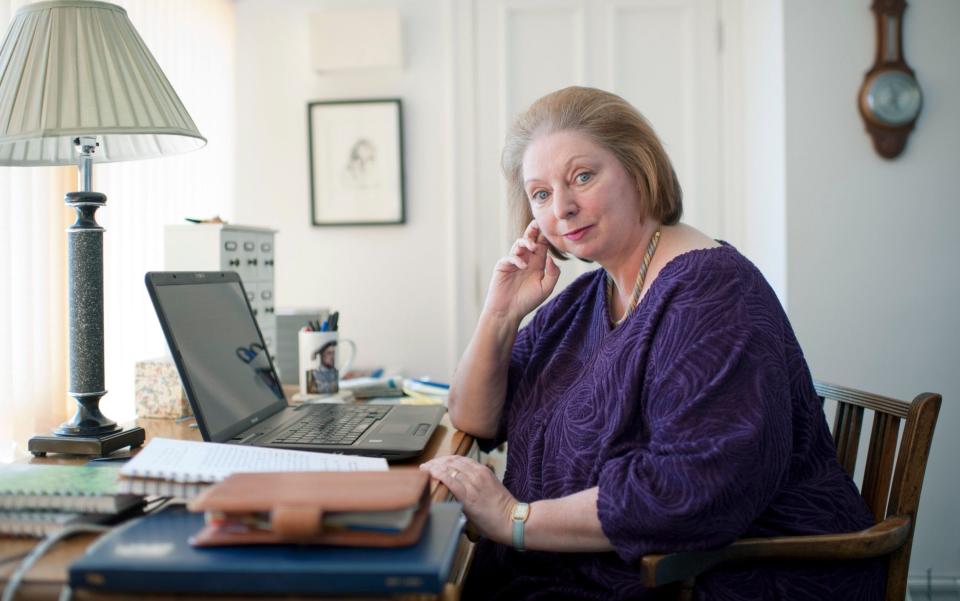Hilary Mantel was right – Mary Bennet was Jane Austen’s forgotten comic gem

On reading today’s headlines, I gave way to a dreadful outbreak of wailing and gnashing of teeth. No, not at Dominic Raab’s woes, but the revelation that at the time of her death, Hilary Mantel had been working on a novel, written from the perspective of Mary Bennet from Pride and Prejudice. After penetrating the innermost thoughts of towering historical figures from Robespierre to Thomas Cromwell, the idea of Mantel setting her sights on the dowdy, gloriously sanctimonious Bennet sister is irresistible beyond words.
Mary is one of Austen’s great comic characters. Her creator, like the rest of her family, is scathing in her estimation of this dogged, high-minded, spinster-in-the-making. As with all great literary half-wits, from Mr Brooke in Middlemarch to Lockwood, the hapless narrator of Wuthering Heights, the key isn’t just being half-witted but possessing a crucial lack of awareness of that fundamental incapacity. Austen specialises in satirical archetypes, yet Mary is also a recognisably modern creation. Arguably more midwit than dimwit, she is the classic clever-stupid person, parroting ideas she has read elsewhere. I imagine a modern-day Mary as the kind who’d put “girly swot” in her Twitter bio.
Mary’s chief role in the novel is as a dramatic foil to Elizabeth; which explains why her treatment so often veers into outright brutality. There’s Mr Bennet’s great quip as Mary hammers away at the Netherfield pianoforte: “That will do extremely well, child. You have delighted us long enough.” She is introduced as having “neither genius nor taste”. Though “vanity had given her application, it had given her likewise a pedantic air and conceited manner, which would have injured a higher degree of excellence than she had reached.” Meanwhile, “Elizabeth, easy and unaffected, had been listened to with much more pleasure, though not playing half so well”. (Hello, police, I’d like to report a drive-by shooting.)
Austen displays flashes of extreme waspishness towards Mary; comparable only to the famous passage from Persuasion on Mrs Musgrave’s mourning: the “large fat sighings over the destiny of a son whom alive nobody had cared for”. In her excellent book The Treasuries, Clare Bucknell notes Austen’s tendency to ridicule anyone “spouting silly bits from anthologies”, such as the commonplace books of literary snippets and moral extracts which Mary devours while the others are out shopping. Austen seems to use Mary as a punch-bag for her own longstanding bêtes noires.
The venom continues even off the page. In his 1870 biography, James Edward Austen-Leigh revealed that his aunt enjoyed speculating about her characters’ fates after the novels’ ending; Mary reportedly obtains “nothing higher in marriage than one of her Uncle Philips’s clerks”. (Ouch.) The gold standard Mary on-screen must be Lucy Briers’s outing in the 1995 BBC version, complete with Benjamin Franklin spectacles and fractionally off-key singing (although Talulah Riley’s 2005 outing also earns a noble mention). Briers’s teeth-grinding rendition of an English rewrite of ‘Ombra mai fu’ – itself a cringeworthy soundtrack to Mr Collins oiling up to Mr Darcy at the ball – is alone worthy of a Bafta.
I wonder whether, in being so Team Lizzie, Austen’s thumb is pressed a little too emphatically on the scales on behalf of her favourite. Intriguingly, in being studious, socially awkward, and marginalised by those around her, Mary bears a passing resemblance to another Austen character, Fanny Price. Except in Pride and Prejudice, these qualities are played for laughs – the Chuckle Brothers do Mansfield Park.

Perhaps a few words in Mary’s defence are in order. She is the ultimate middle child, desperately trying to grab attention and carve out a distinctive niche for herself, despite having been dealt a shockingly bad hand in life. A sympathetic reader might view her retreat into her music-room and extract books as a defence against feeling constantly belittled by her own family.
Regency England must be one of the cruellest times to have been born a Mary Bennet. Her abstemious and judgmental ways would have thrived aboard the Mayflower. In the Middle Ages, she might have entered a nunnery. Nowadays, we lionise introverts and nerds (this is Elon Musk’s world, after all, and we’re just living in it). But in her own society, where some permutation of money, looks or charm would have been crucial, Mary – lacking all three – has nothing to recommend her. Yet she has a go anyway: there’s an essential defiance to her that makes her more than a figure of pity.
Ask an Austen fan which heroine they identify with, and they’ll usually say “Lizzie”, “Anne Eliot” or even “Emma Woodhouse”, just as when people claim to have been reincarnated it’s invariably as someone famous. Always Cleopatra; never an Egyptian dung-shoveller. But although it’s mathematically impossible for the world to be populated with Lizzies, few of us see ourselves as Mary. Lizzie is the paragon with a witty comeback ready-made for every situation. Mary; the dullard who remembers it 10 minutes later, having looked it up in her Commonplace Book. I know which is more relatable.
What a shame, then, that the Mantel Mary Bennet must join Edwin Drood in the great “what ifs” of English literature. Under Mantel’s subtle hand, no doubt Mary would have triumphantly come into her own.


